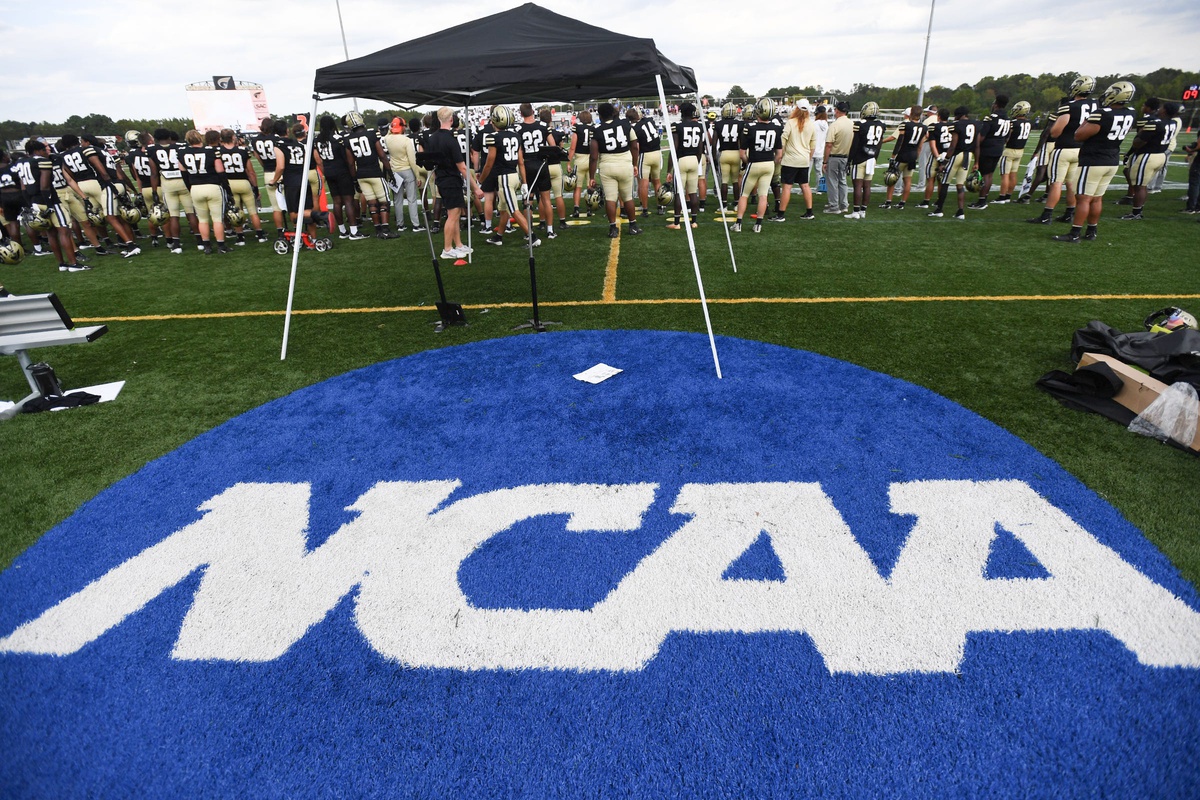Hundreds of current and former college athletes have filed objections to various aspects of the House v. NCAA settlement, citing concerns about gender equity and antitrust, as well as protesting the settlement allowing for roster limits.
And other college athletes have taken their grievances a step further.
More than 150 Division I athletes, from football and baseball to women’s basketball players, decided to opt out of the House settlement on Friday and join a separate ongoing lawsuit called Fontenot v. NCAA, plaintiff lawyers told FOS.
Also on Friday, 67 athletes, led by former Mississippi State running back Kylin Hill, have opted out in order to file a new case against the NCAA and power conferences in the Northern District of California called Hill v. NCAA. On the same day, another lawsuit including 33 opt-outs led by Wyoming basketball player Dontaie Allen, Allen v. NCAA, was filed in the Eastern District of Kentucky.
That means that at least 250 current and former athletes have decided to opt out of the settlement altogether. The goal: receive a higher payment than what the House v. NCAA settlement offers.
The House settlement would provide $2.8 billion in back-damages to athletes who couldn’t profit off NIL (name, image, and likeness) deals before 2021, as well as allow revenue-sharing between schools and players. But it includes other stipulations, like a cap on revenue-sharing, the imposition of roster limits, and the ability to block booster or collective-funded NIL deals that are considered “pay-for-play.”
It’s unclear how much this would impact the House settlement itself. The settlement claims are being offered to hundreds of thousands of athletes, and 40,000 have filed claims suggesting they would participate, plaintiff attorney Jeff Kessler told FOS last week.
If a certain number of athletes agree to opt out of the settlement, it could trigger an automatic rejection of the terms—but that number is redacted from public court documents. (A list of opt-outs is slated to be publicized on March 3.)
Fontenot v. NCAA, which was first filed in Colorado federal district court in 2023, goes much further than the claims brought by House v. NCAA. It argues that the NCAA and Power 5 conferences have illegally restricted all forms of athlete compensation beyond NIL deals, and that plaintiffs deserve damages for more than just lost NIL rights. The named plaintiff, Alex Fontenot, played football at Colorado between 2017-22. He was among the four other plaintiffs listed in an amended complaint filed in July, which also includes Sarah Fuller, a former Vanderbilt soccer player who became famous when she became the first female kicker in a Power 5 football game.
The group of 150 athletes joining the lawsuit includes more than 40 All-Americans across various sports, and athletes who have played in the NFL, NBA, WNBA, and MLB, Fontenot v. NCAA plaintiff attorney Garrett Broshius confirmed to FOS.
The Allen v. NCAA case, which does not name any conferences as defendants, includes 33 D-I men’s basketball and football players and argues that the NCAA has illegally restricted multiple types of compensation, including NIL rights. Named plaintiff Dontaie Allen played basketball at Kentucky and Western Kentucky, and is currently at Wyoming.
“One of the big drivers for us … was the way the non-Power 5 athletes were treated was completely not commensurate with the services they provided,” Allen v. NCAA plaintiff attorney Chris Macke tells FOS. “And I’m talking about guys that got to the Final Four, guys that got to the NCAA Finals, were everywhere, that were the most famous athletes in America. … Those guys should be compensated far beyond what they would be compensated [in House v. NCAA].” There were athletes who Macke is representing who wouldn’t even receive four-figure payments under the House settlement.
On the other hand, the new Hill v. NCAA case argues similar claims to the House v. NCAA. Kylin Hill is one of 67 plaintiffs, all of whom played Division I sports ranging from football to softball, before 2021. The case argues that players deserve back-damages for not receiving NIL payments before 2021 and that the definition of NIL should be expanded to include broadcast rights; it also asks for an injunction to stop the NCAA and conferences from restricting NIL in the future.
Some of the language in the Hill complaint appears to be copied and pasted from House v. NCAA, said Boise State law professor Sam Ehrlich, who has been closely following House v. NCAA. (He added that this wasn’t uncommon for lawsuits similar in nature.)
“I’ll wonder if [Hill v. NCAA is] shooting for a better settlement or actual litigation on the merits,” he tells FOS. “The latter would be especially interesting because I think the NCAA is very keen on not having liability on this sort of claim.”
Plaintiff attorneys for Hill v. NCAA did not respond to an emailed request for comment.
While these lawsuits continue, the House v. NCAA settlement proposal will be discussed in a final approval hearing on April 7. But rather than the end of the story on the evolution of amateurism, the House case seems to be just the beginning.





![[Subscription Customers Only] Jun 15, 2025; Seattle, Washington, USA; Botafogo owner John Textor inside the stadium before the match during a group stage match of the 2025 FIFA Club World Cup at Lumen Field.](https://frontofficesports.com/wp-content/uploads/2026/02/USATSI_26465842_168416386_lowres-scaled.jpg?quality=100&w=1024)
![[Subscription Customers Only] Jul 13, 2025; East Rutherford, New Jersey, USA; Chelsea FC midfielder Cole Palmer (10) celebrates winning the final of the 2025 FIFA Club World Cup at MetLife Stadium](https://frontofficesports.com/wp-content/uploads/2026/02/USATSI_26636703-scaled-e1770932227605.jpg?quality=100&w=1024)










